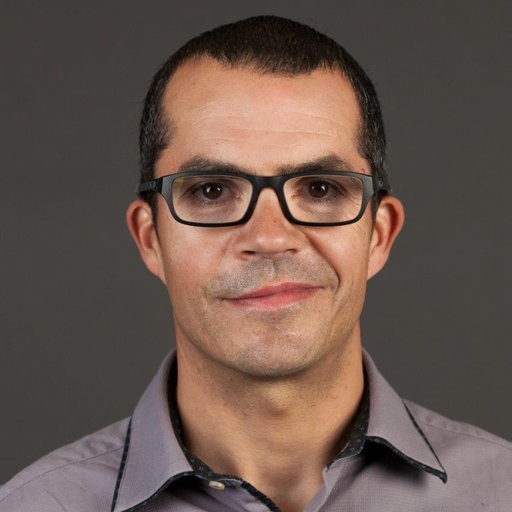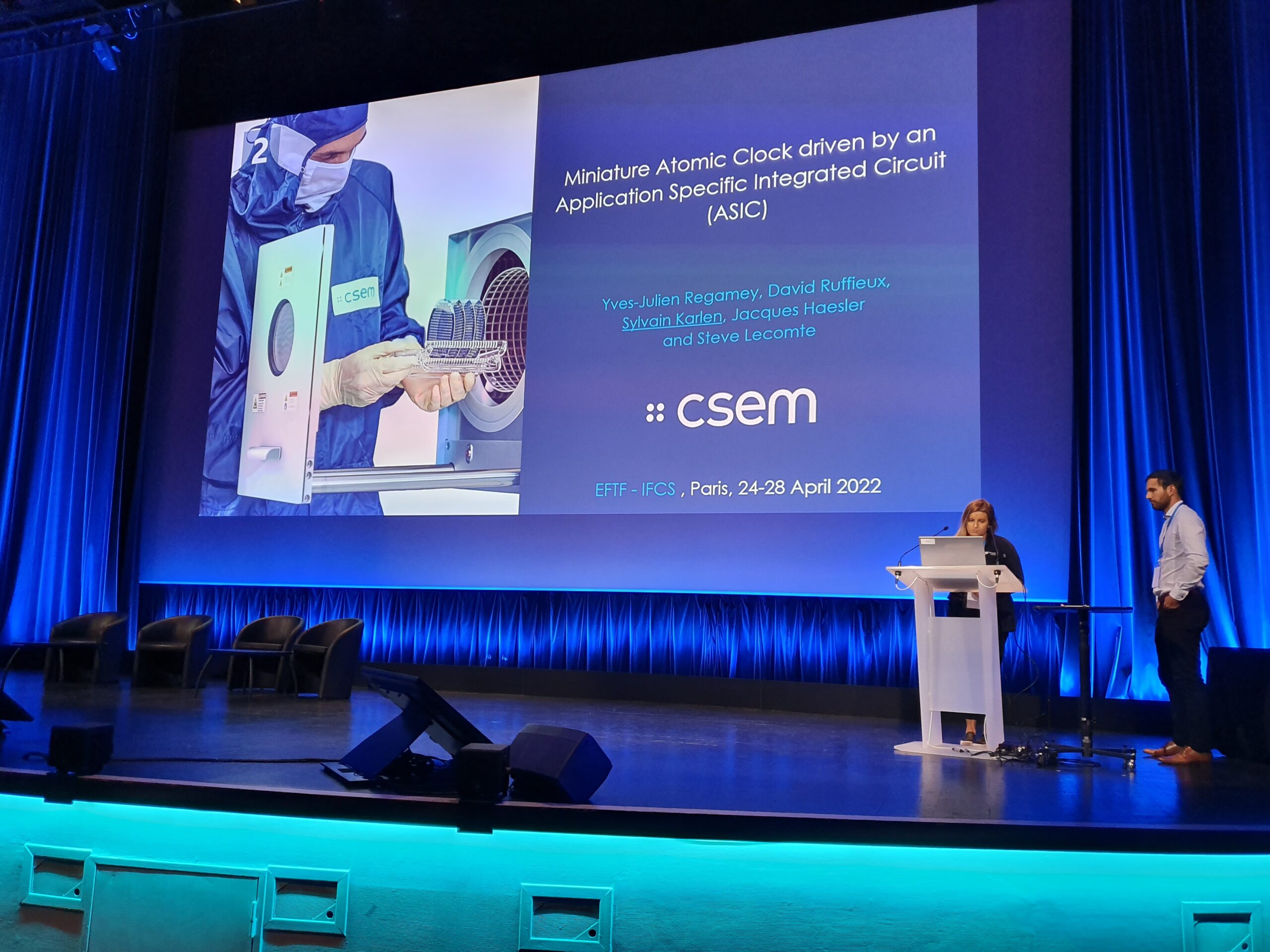Three years after the last in-person IFCS and EFTF, the Time & Frequency community met again at the 2022 joint EFTF and IFCS conference. The event was held between 24 – 28 April at the “Cité des Sciences” science museum in Paris, France with a hybrid option providing online access for those attending virtually. This event was an excellent opportunity to showcase latest breakthroughs from the macQsimal project within the field of miniaturized atomic clocks.
The symposium offered an overview on topics including:
Group 1: Materials, Resonators, & Resonator Circuits
Group 2: Oscillators, Synthesizers, Noise & Circuit Techniques
Group 3: Microwave Frequency Standards & Applications
Group 4: Sensors & Transducers
Group 5: Timekeeping, T&F Transfer, Telecom, GNSS & Applications
Group 6: Optical Frequency Standards & Applications
The macQsimal project was strongly represented by partners from Université de Neuchâtel (Prof. Gaetano Mileti, Dr. Christoph Affolderbach and Etienne Batori), CSEM (Dr. Jacques Haesler, Dr. Sylvain Karlen, Dr. Davide Grassani and Dr. Laurent Balet) and Orolia (Dr. Serge Grop and Christian Schori).
Contribution to the event covered both, oral and poster presentations.
Lectures from macQsimal partners dominated the Chip-scale Atomic Clock Session chaired by John Kitching from NIST on the 27th of April covering four of six talks delivered during this session:
- Chip Scale Rubidium Oscillator for Space Application
Serge Grop, Jacques Haesler, Joseph Gouloumet, Sylvain Karlen, Davide Grassani, Vito Genna, Christian Schori, Laurent Balet - Adapting a Flat-Form Factor Miniature Atomic Clock to a Commercial Package: Preliminary Characterization
Davide Grassani, Laurent Balet, Olivia Hefti, Sylvain Karlen (CSEM), Fabien Droz, Joseph Gouloumet, Serge Grop, Christian Schori - Long-Term Instability of a Pulsed Optically Pumped Micro-Cell Rubidium Frequency Standard
Etienne Batori, Christoph Affolderbach, Florian Gruet, Matthieu Pellaton, Gaetano Mileti, Yuanyan Su, Maddalena Viole - Miniature Atomic Clock Driven by an Application Specific Integrated Circuit (ASIC)
Yves-Julien Regamey, David Ruffieux, Sylvain Karlen, Jacques Haesler, Steve Lecomte
The presentations covered insights from the space application of Orolia’s compact clock with a physics package developed by CSEM, the performance of the miniature atomic clock prototype, the impact of application-specific integrated circuit (ASIC) on reducing power consumption and advancements in a higher-performance compact clock.
macQsimal partners presented also two posters during the in-person session held on Monday 25th April:
- Experimental Determination of Relaxation Rates in a Ramsey-Mode Rubidium Cell Atomic Clock (Group 3: Microwave Frequency Standards & Applications)
Etienne Batori, Christoph Affolderbach, Florian Gruet, Matthieu Pellaton, Gaetano Mileti, Yuanyan Su, Maddalena Viole - A Hot Vapor Optical Clock Targeting Miniature Dimensions with Frequency Instability Below 10⁻¹³ (Group 6: Optical Frequency Standards & Applications)
Roman Blum, Sylvain Karlen, Stefan Kundermann, Steve Lecomte
In addition, Gaetano Mileti and Christophe Affolderbach from UniNE were also chairing a session dedicated to Cell Standards (clocks) whereas Orolia with a booth showcased a full suite of Industrial dedicated products including the latest breakthrough low SWaP-C Miniaturized Rubidium Oscillator.

@ photo credits CSEM

